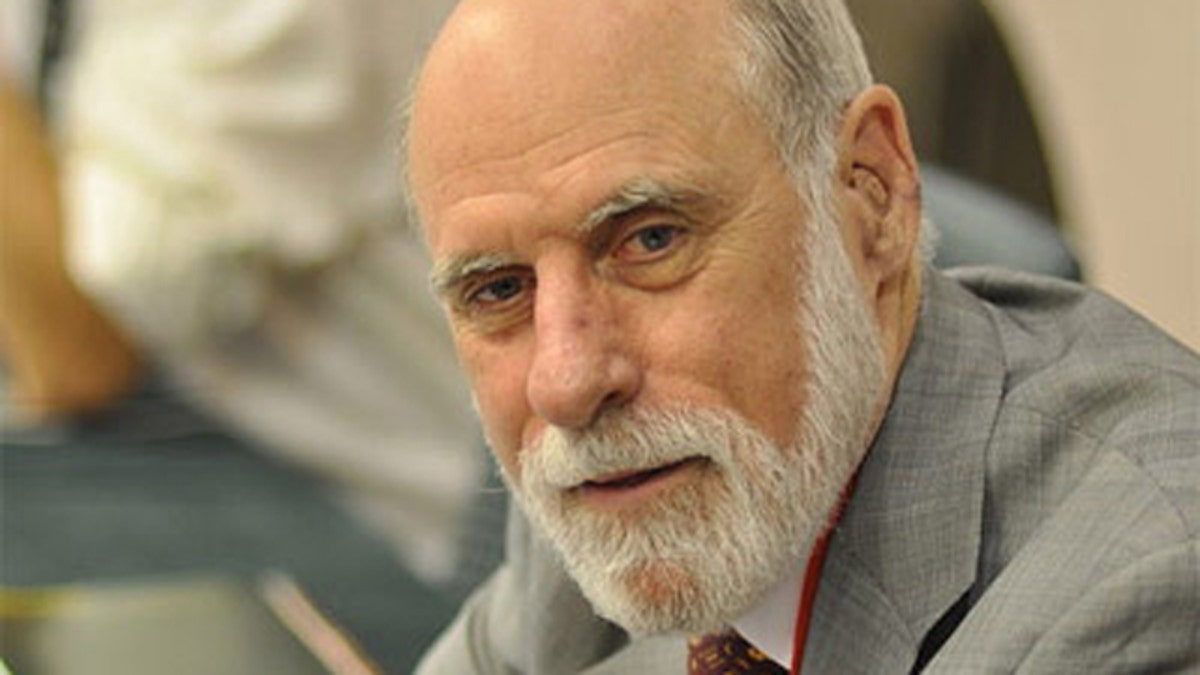
Vint Cerf, Google's Chief Internet Evangelist. (Wikimedia)
Legendary computer scientist Vint Cerf -- widely hailed as one of the founders of the Internet itself -- came out against the Stop Online Piracy Act (SOPA) on Thursday, joining a coalition of most of the Internet's major sites that are attempting to foil the bill.
SOPA was proposed to help end online copyright infringement, an issue the Motion Picture Association of America and the recording industry have long complained about. The House on Friday continued to debate the bill, which would require service providers to take action against "foreign infringing websites" that post stolen content. Cerf argued that it would put harsh demands on most websites -- and could lead to massive Internet censorship.
"Requiring search engines to delete a domain name begins a worldwide arms race of unprecedented 'censorship' of the Web," Cerf wrote in a letter to Chairman Lamar Smith that Rep. Darrell Issa (R-Calif.) presented to the panel Thursday. CNET posted the full text of the letter to its site late Thursday night.
"I continue to have concerns regarding the efficacy and wisdom of this legislation," he wrote, noting that he joined the many Internet and cybersecurity experts that have already expressed concern about certain provisions within the original version of the SOPA bill.
Issa, one of the most vocal opponents of the bill, used Thursday's initial "markup" of the bill to present Cerf's letter, as well as to voice his own ongoing opposition to the legislation as it stands.
"It's very clear that you can have hundreds of thousands of links in a matter of hours," Issa told a House panel evaluating the bill yesterday. "If the LA Times runs an article in their online paper, and they're talking about a site that promotes piracy … we would have to look and say, 'well Google's going to have to cut off the link to the LA times page because that link has a link."
"Once you begin to cut off links -- once you become China-esque -- you start a snowball effect from which there is no end."
Issa proposes an amendment to the SOPA bill called the Online Protection and Enforcement of Digital Trade Act, or the OPEN Act, written earlier in the month by a coalition of lawmakers including Issa and Sen. Ron Wyden (D-Ore.).
According to CNET, the OPEN Act would interrupt funding to offshore piratical websites by targeting only Internet ad networks and financial providers such as credit card companies -- stopping short of SOPA's approach of allowing the Justice Department to seek a court order blocking Americans from accessing "rogue" websites.
But even that bill has its detractors. Opponents say OPEN would put the onus of policing copyright on the International Trade Commission, making it expensive to implement.
Issa has posted a side-by-side comparison of the bills on a website his office has created, called KeepTheWebOpen.com
"This is a bill about denial," he argued.
